Documentary Feature "Ulugh Beg. The Man Who Unlocked The Universe"
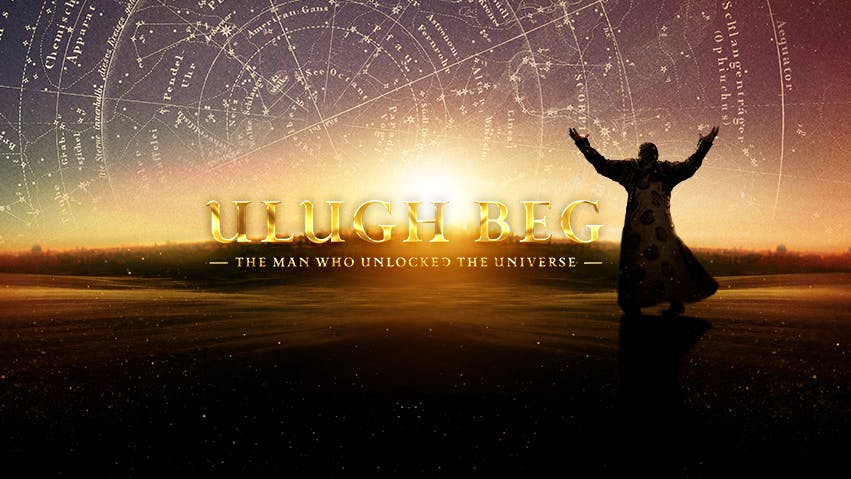
A documentary exploring the life and legacies of Ulugh Beg, astronomer extraordinaire who ruled parts of Central Asia in the fifteenth century.
Produced by Lola Karimova-Tillyaeva and Timur Tillyaev
Directed by Bakhodir Yuldashev
Score by Walter Afanasieff
Starring: Vincent Cassel, Armand Assante and Francisco Ovalle
“I’ve always been fascinated by Ulugh Beg’s personality and the historical role he played, it’s been my dream to make a documentary about him,” says producer Lola Karimova-Tillayeva.
Using dramatic enactment, computer graphics, interviews and archive footage, this film takes us from Ulugh Beg’s birth as a prince in the Timurid dynasty through his unusual childhood and education right up to his untimely death, foretold in the stars.
But Ulugh Beg was no ordinary ruler; devoted to knowledge and the arts, this gifted scholar brought together many great minds, transforming Samarkand into the centre of the fifteenth century astronomy world. One hundred and fifty years before Galileo invented the telescope, Ulugh Beg built the largest astronomical instruments on earth, using his incredible observatory to map the stars, making precise calculations and charts still in use today. To give but two examples of his extraordinary accomplishments, he measured the duration of the year to within 25 seconds of the actual figure, while his calculation of the earth’s axial tilt as 23.52 degrees, made over 500 years ago, is still the most accurate to date.
The producers, Lola Karimova-Tillyaeva and her husband Timur Tillyaev, have gone to great lengths researching the facts of Ulugh Beg’s remarkable life, consulting historians specializing in the Timurid period to ensure the authenticity of costumes and other details. The film showcases artefacts, manuscripts and exhibits held in museums around the world.
We also hear from leading experts and scholars from Denmark, France, the Netherlands, Russia, UK, USA and Uzbekistan who explain some of Ulugh Beg’s amazing discoveries, from the geometry behind breath-taking mosaics to the modern-day implications of his seminal ‘Zij’ star catalogue.
The film stars world-renowned actors Vincent Cassel, Armand Assante and Francisco Ovalle, as well as Uzbek actors Maruf Otajonov, Javakhir Zakirov and Khashim Arslanov.
The score was composed by well-known record producer and songwriter Walter Afanasieff, winner of the 1999 Grammy Award in the Record of the Year category, and the soundtrack also features a brilliant performance by outstanding Uzbek singer Sevara Nazarkhan.
ULUGH BEG – THE MAN WHO UNLOCKED THE UNIVERSE combines the very best of modern cinematography with the mysterious beauty of fifteenth-century Central Asia, a fitting tribute to this visionary architect, educator, scientist and leader, one of the greatest Muslim scholars of the Eastern Renaissance.
ULUGH BEG
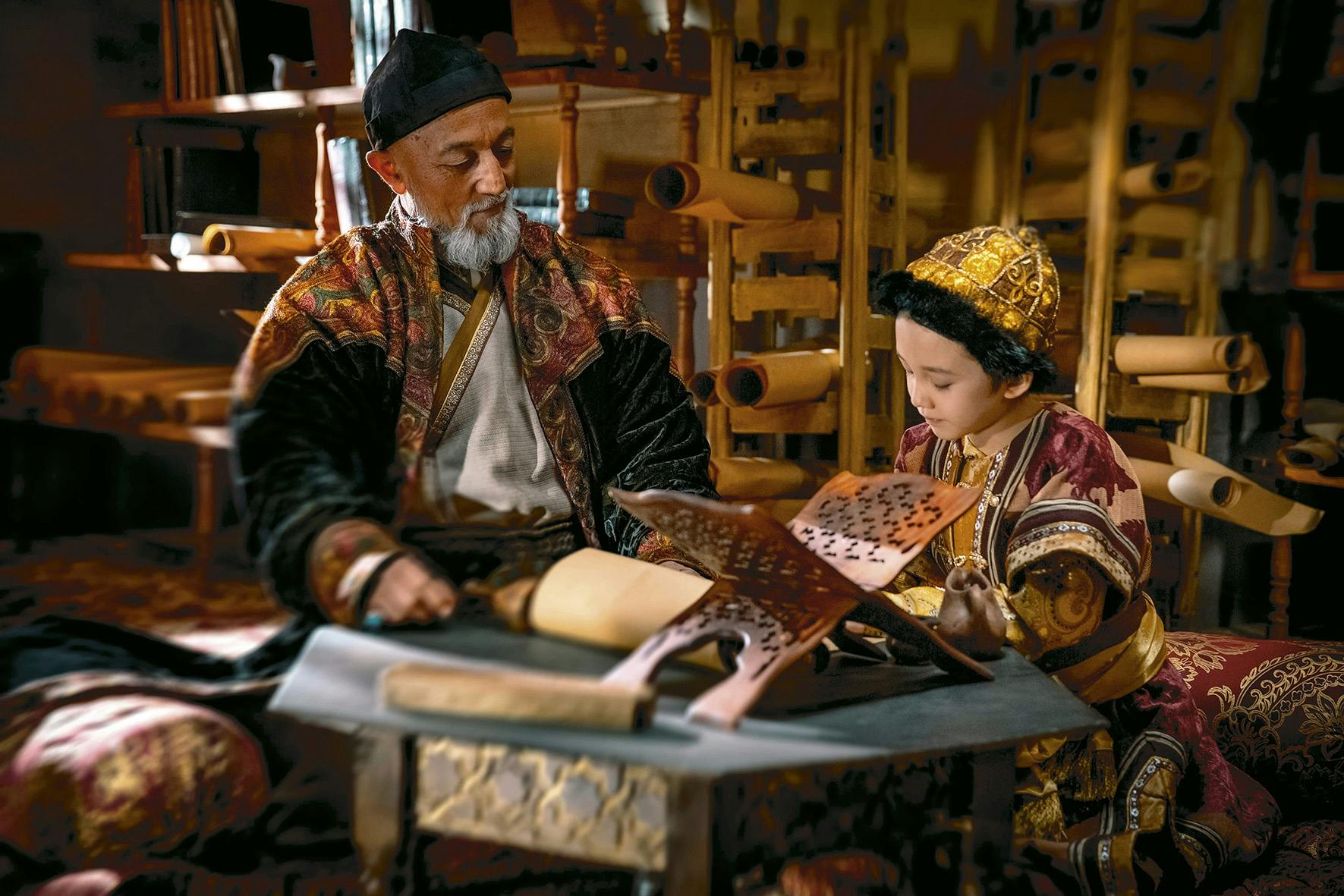
The Boy
Born a prince in 1394 into the mighty Timurid dynasty which once ruled vast swathes of Central Asia, Ulugh Beg spent much of his childhood studying, and soon became adept at debating not only with his peers but even with his teachers. His love of books and thirst for knowledge stayed with him all his life, and when he ascended to the throne (1411 to 1449), he oversaw the construction of several madrasah colleges, inviting the brightest minds to his capital, Samarkand, which soon became renowned as a vibrant centre of learning
Although fond of literature, history and the arts, Ulugh Beg’s main passion was science, particularly astronomy and mathematics. His achievements in these fields are quite remarkable.
The Scientist
In 1420 or thereabouts, Ulugh Beg began the construction of what would become the largest and most complex astronomical instrument of his day, his Observatory.
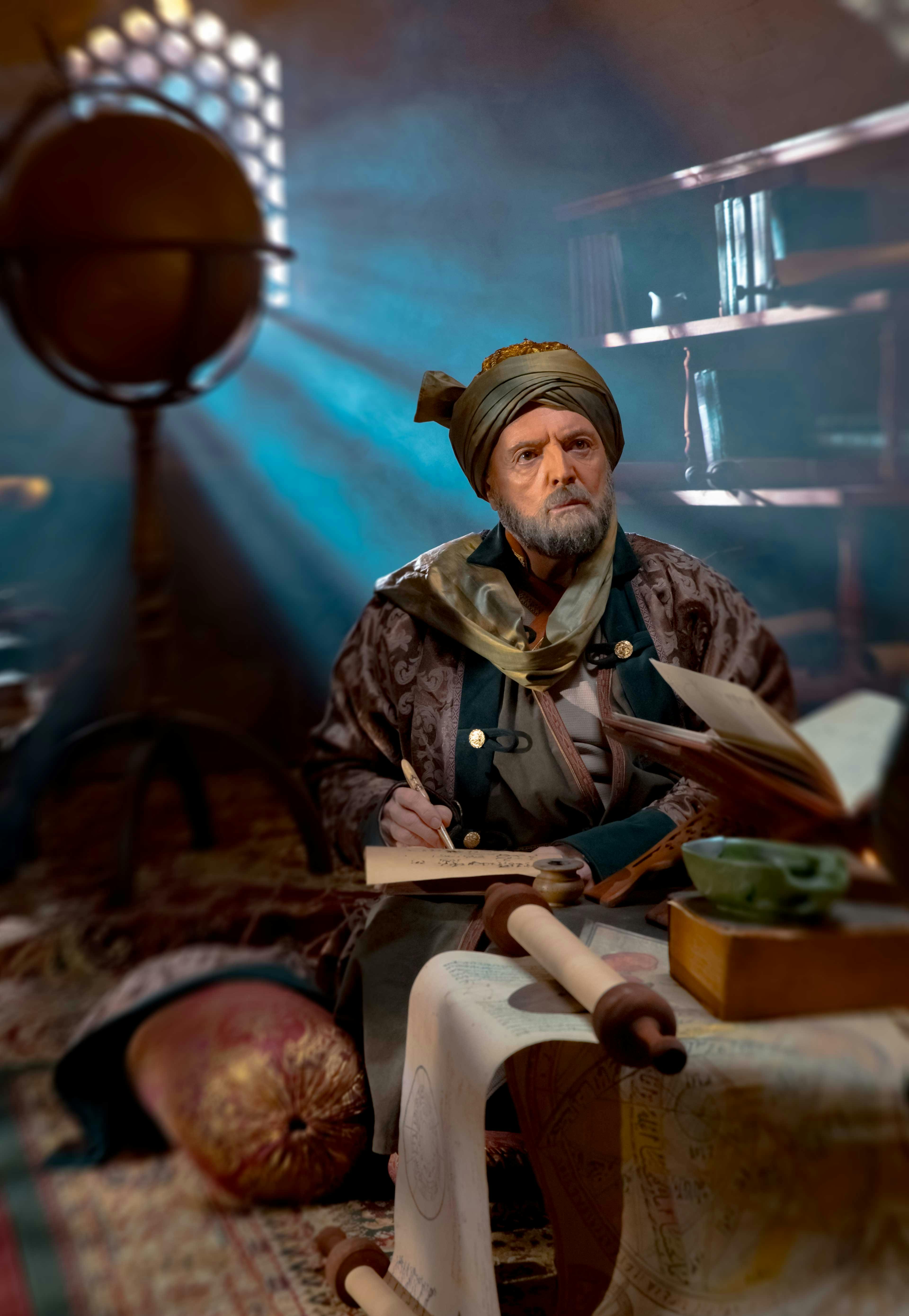
Located on a hill to the North of Samarkand, this colossal structure was three storeys high, fifty metres across and housed the world’s largest astronomical equipment: a gigantic sextant. With an arc radius of 40.2 metres, special bronze rails were fitted inside to allow the observer to adjust the instrument, directing the ‘window’ (sighting vanes) to the specific celestial body being studied. When the Sun was under observation, the whole sextant would become completely dark, effectively turning it into a huge camera-obscura. Thanks to its huge dimensions (one degree on this meridian arc was over 70cm long!) and precise, complex construction, this goniometrical instrument allowed Ulugh Beg and his team of brilliant astronomers to make astoundingly accurate measurements. Methodical and patient, Ulugh Beg painstakingly verified his data over and over until he was satisfied they were correct. And they were! Back in 1437, he measured the duration of the year to within 25 seconds of the actual figure. His calculation of the earth’s axial tilt as 23.52 degrees, made over 500 years ago, is still the most accurate to date.
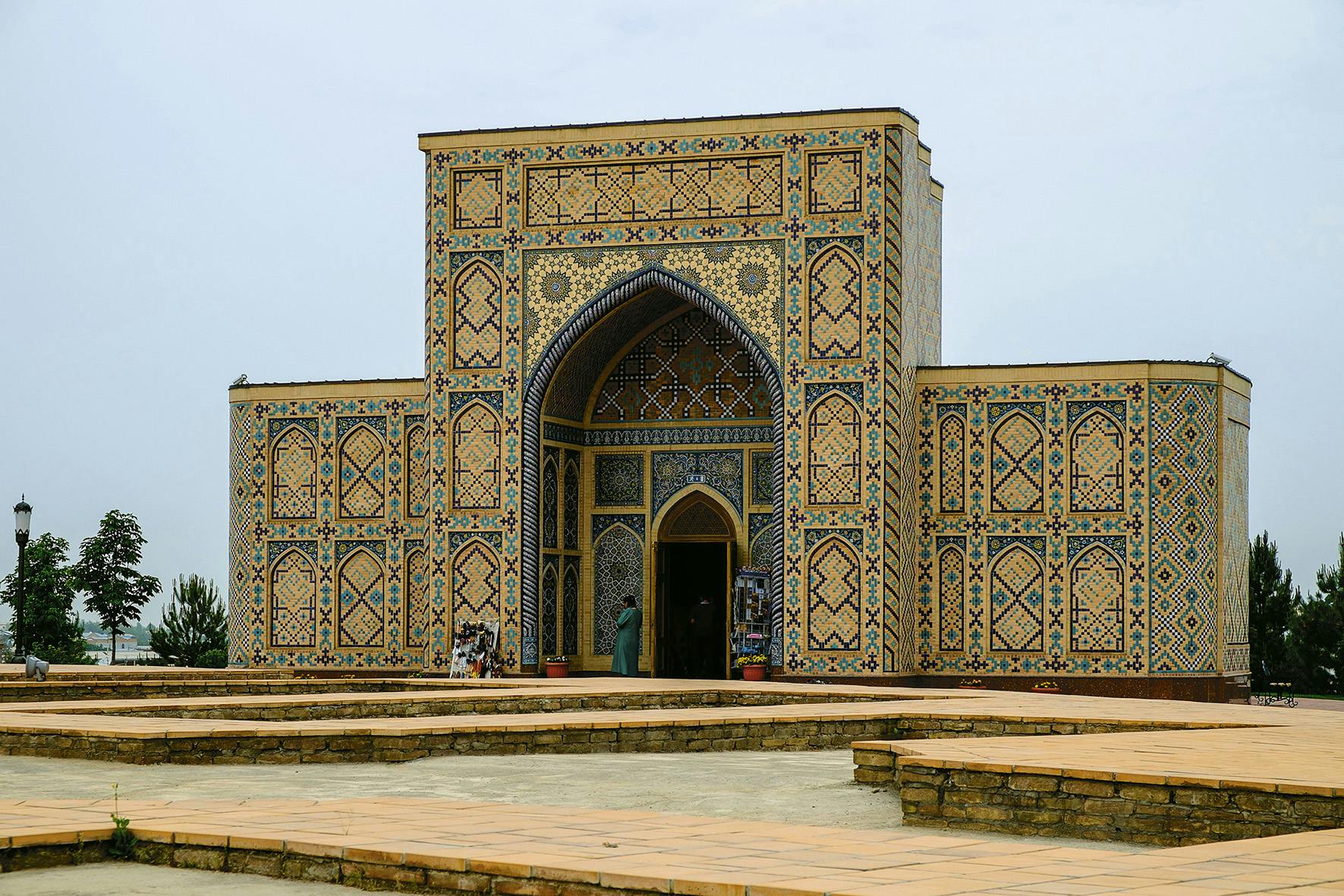
Another innovative instrument in the Observatory was the armillary sphere fixed on the observatory roof. Nine metres in diameter, Ulugh Beg used this for stellar observation. Incredibly, the difference between Ulugh Beg’s data and that of modern times regarding Saturn, Jupiter, Mars and Venus is a mere two to five seconds! His results were tabled in another of his great achievements, the Zij-i Sultani, star catalogue, published in 1444, which details around a thousand celestial bodies and eventually made its way to Oxford University, where it set the standard for such works for another two hundred years. Ulugh Beg’s star catalogue had, quite literally, far-reaching effects, since it became the basis of many charts used for nautical navigation.
Tragically, by the end of the seventeenth century almost nothing was left of this impressive Observatory, and researchers are still trying to solve the mysteries locked in the ruins.
The Ruler
Following the death of his father, Ulugh Beg rode into battle to secure his supremacy against his nephew who had laid claim to the throne. Although victorious on this occasion, Ulugh Beg found himself beset by those who did not support his more enlightened style of governance. Civil war broke out, and this great thinker was ambushed and murdered on the orders of his own son. His legacy, however, lives on, immortalised in his prodigious contribution to astronomy, mathematics and the breath-taking architectural monuments of his capital Samarkand.
ULUGH BEG: THE MAN WHO UNLOCKED THE UNIVERSE
was co-produced by Lola Karimova-Tillyaeva and her husband, Timur Tillyaev
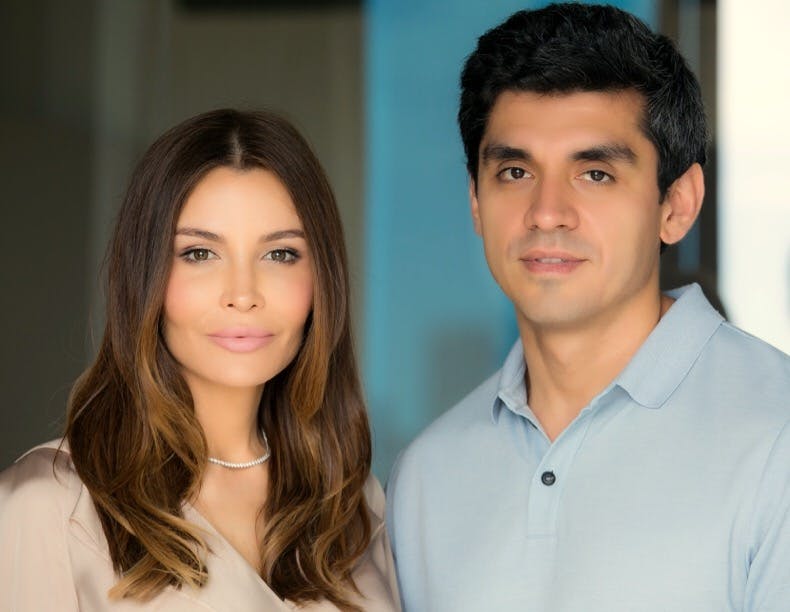
Born in 1978 in the Uzbek capital of Tashkent, Lola Karimova-Tillyaeva earned bachelor’s and master’s degrees in International Law from the University of World Economy and Diplomacy in Tashkent, going on to receive a doctorate degree in Psychology from Tashkent State University.
Together with her husband Timur, also born and raised in Uzbekistan, she is actively involved in preserving her country’s rich cultural heritage, and in her current role as Uzbekistan’s ambassador to UNESCO, Lola Karimova-Tillyaeva focuses primarily on promoting the centuries-old historical heritage of Uzbekistan, with a view to advancing a better understanding between civilizations and respect for their values.
It was with this goal in mind that she and her husband embarked on the production of ULUGH BEG: THE MAN WHO UNLOCKED THE UNIVERSE, a docudrama vividly portraying the story of a prodigious individual whose life encapsulates so many of the admirable qualities inherent in Uzbek history and culture.
Mrs. Karimova-Tillyaeva heads two major charitable organizations in Uzbekistan and is renowned for her key role in promoting education and sports as well as championing the rights of orphaned children and children with disabilities in Uzbekistan.
She has always adhered firmly to her belief that education, culture and sports are key factors in promoting peace and tolerance, and function as a bridge between civilizations, helping to overcome ignorance and stereotypes.
“This is the first time my husband Timur and I have taken on the role of film producers. We are delighted to be so actively involved in this documentary about the remarkable life and work of the renowned fifteenth century philosopher and scientist, Ulugh Beg. I’ve always been fascinated by his personality and the historical role he played, it’s been my dream to make a documentary about him – great thinker, peace-loving leader, a Renaissance man endowed with a unique set of human qualities that were beyond his time. For me, Ulugh Beg is an outstanding figure who transcends borders and ages.
Considerable research has gone into making this documentary, of course. We have consulted historians specializing in the Timurid period about details surrounding Ulugh Beg’s life, but also to ensure costumes and sets are as authentic as possible. Museums, universities and libraries such as the Bodleian Library at Oxford University, the British Museum, Princeton University, David Collection in Copenhagen, the Museum of the History of Science in Oxford, and St. John’s College, Oxford, have opened their doors to us, allowing us to use their resources and showcase exhibits dating back to the days when Ulugh Beg was ruler of Samarkand.
On a more modern note, we have interviewed a wide range of experts and scientists in Great Britain, USA, Uzbekistan, Denmark, Russia, and the Netherlands to help the viewer put Ulugh Begs innovations and discoveries into perspective, help us realise just how momentous his astronomical observations were.
As the project took shape, I realised that this film should be directed by someone born and raised in Uzbekistan, someone who knew and felt this theme as deeply as I do. Bakhodir Yuldashev was the obvious choice, and in my opinion, he has done a wonderful job in transposing the depth and tragedy of this eminent philosopher’s life, throwing himself into the story and time of this extraordinary scientific and historical figure.
Nationally-acclaimed Uzbek actors Maruf Otajonov, Javakhir Zakirov and Khashim Arslanov play alongside Hollywood stars Vincent Cassel, Armand Assante, and Francisco Ovalle, and Uzbek and Kazakh stuntmen took part in several action scenes.
The score for the film also bridges East and West. It was written by the famous Hollywood composer Walter Afanasieff, and the wonderful voice of Sevara Nazarkhan lends its powerful beauty to the soundtrack.
As producers of this film, I believe my husband and I have contributed to a project which will have a far-reaching effect in furthering understanding between peoples and shedding light on one of Central Asia’s great thinkers.”
BAKHODIR YULDASHEV
Director
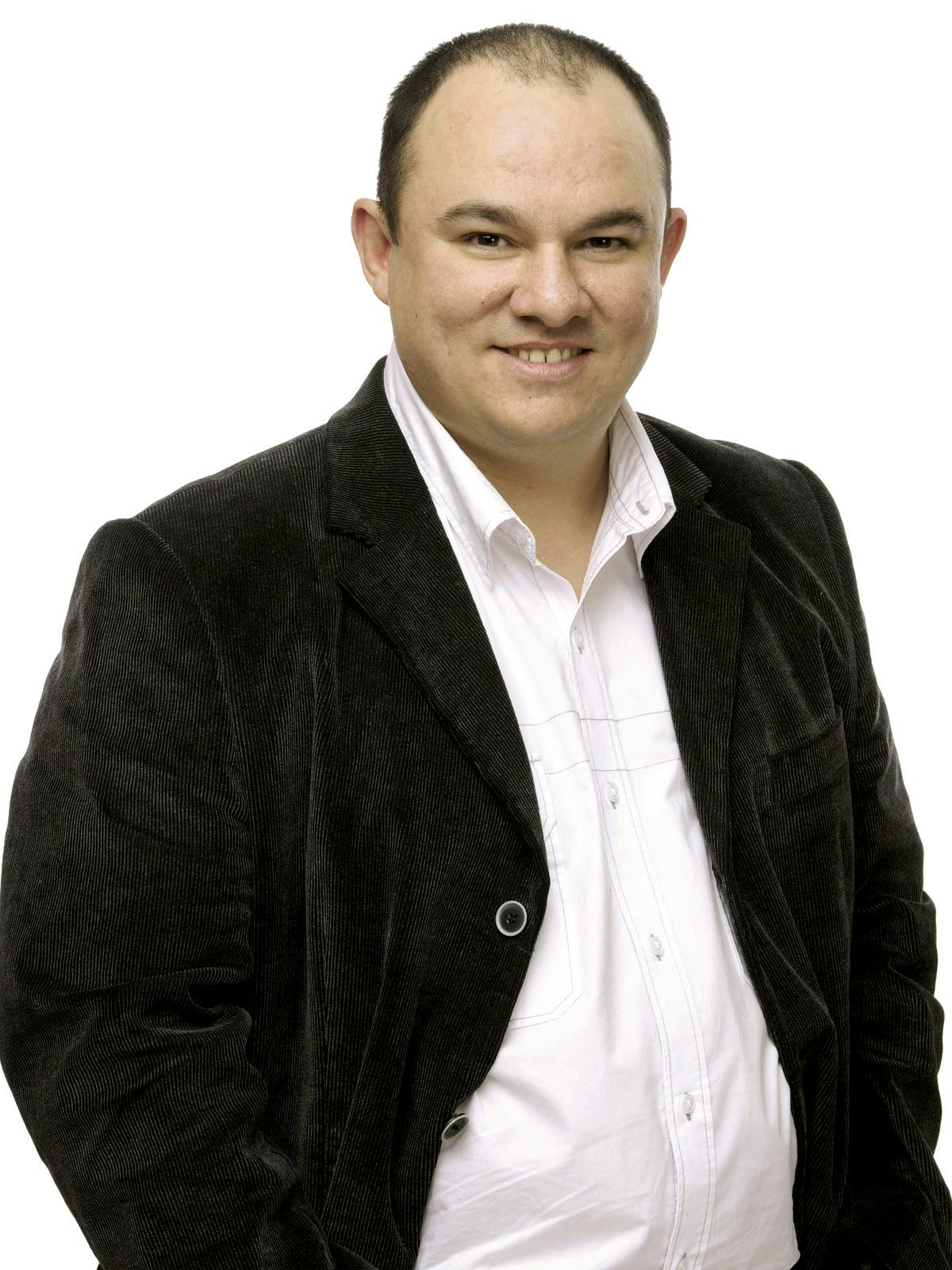
How did the idea of creating this film come about?
In May 2015, I approached Lola Karimova-Tillyaeva with the idea of creating a new film based on historical events in Uzbekistan in the Middle Ages. But Lola had an idea of her own, a prospect that was even bigger than my wildest dreams. Just the mention of the proposed protagonist gave me goose bumps. After all, we are talking about a direct descendant of Tamerlane – the great astronomer and mathematician, Ulugh Beg! We learned about him at school, I found his story fascinating, and tragic, too.
How did you prepare for the shooting?
Once we’d decided to go ahead with the film, we had the daunting task of writing the script. We took great pains, a colossal amount of work went into it. In this regard I was very lucky as our producer, Lola Karimova-Tillyaeva, provided me with a lot of valuable historical resources. Some wonderful and very talented people worked with me on the screenplay. An Uzbek professor and Ulugh Beg expert, Abror Khiddirov, from the Department of History, Mirzo Ulugh Beg National University cooperated with the production; as well as the Director of the Institute of Astronomy of the Academy of Sciences of Uzbekistan, Shukhrat Egamberdiev. It was an honor for me to work with these academics and I very much enjoyed talking with these men who had devoted their lives to science, just as the great Mirzo Ulugh Beg had.
Were there interesting facts and events related to the film?
There were certainly a great many interesting moments. However, for me, the most memorable – you might even say mystical – was when I entered the tomb of the Great Tamerlane, that is where his grandson, Mirzo Ulugh Beg, is buried, too. Inside, I silently called out to them for their help. Being a true realist, and knowing the subtleties of my profession, I was well aware that everything depends on preparation – this is the most important part of working on any film, although unforeseen obstacles still inevitably crop up. Sometimes these obstacles seem almost like a jinx or a gremlin, threatening to pull the rug out from right under you during shooting. But with this film, many of these nasty surprises mysteriously disappeared, as if of their own accord. What seemed like an impossible task just hours before would magically melt away! It was as if the spirit of Tamerlane and Ulugh Beg were opening doors for us, removing any obstacles along our path. I leave it up to you to draw your own conclusions as to whether we actually received help from beyond.
What kind of audience do you think this film will appeal to? Who would you like to interest most?
We tried to shoot the film in a way that would be accessible and interesting to all viewers. We’re hoping for a very diverse audience. We want to immerse the viewer into an era marked by: discovery, love, betrayal, civil strife and epic battles. These events unfold quickly on camera and the viewer will be instantly grabbed by the story of Ulugh Beg, a man dedicated to the study of science, the stars, and the universe. This is the tale of the tragic fate of a scientist who did not know the love of his own son, but instead was the victim of his hatred. I think this story will have something for everyone.
What experience have you gained through filming this project?
This project has given me an immeasurable personal experience – I was able to express the history of my great nation! But it wasn’t an easy film to make, you’re representing history figuratively, but also physically – we utilized artifacts that are 500, 600, 700 years old. This touches you deeply, goes to the very center of your soul. You begin to understand who these people are and their place in history. And it humbles me to know that I had a hand in bringing their story to life again.
Is it fair to say you have made a significant contribution to the history of Uzbekistan and the World of Science as a whole with this film? How do you feel about that?
As a native son of Uzbekistan, I can tell that you that the history of my country is over 3000 years old. Our ancestors were among the first to build beautiful cities, with architectural structures unparalleled not only in Central Asia, but all over the world.
They made great strides in medicine, and science –Mirzo Ulugh Beg, for instance, created the world’s most accurate star catalog with his naked-eye, 150 years before Galileo Galilei invented the first telescope! To this day, the accuracy of his catalog is still appreciated. He really did open the secrets of the stars and mathematics to the world. So of course, I was honored when I was approached to depict his work, his life. My contribution to science is negligible, but I hope my contribution to the popularization of this story about a scientist who has largely been underestimated will be much greater. To this end, I sought to create a storyline that would be universally understandable to all viewers.
What do you hope the viewer takes from this film?
Appreciate every moment in life. We’re only given one chance. So go out at night, open your eyes wide, and look up at the stars. Staring up at the sky, you can’t help but feel keenly connected to planet earth. Here we are, all living as brothers and sisters – living to create, and to create for the good of the world.
WALTER AFANASIEFF
Composer
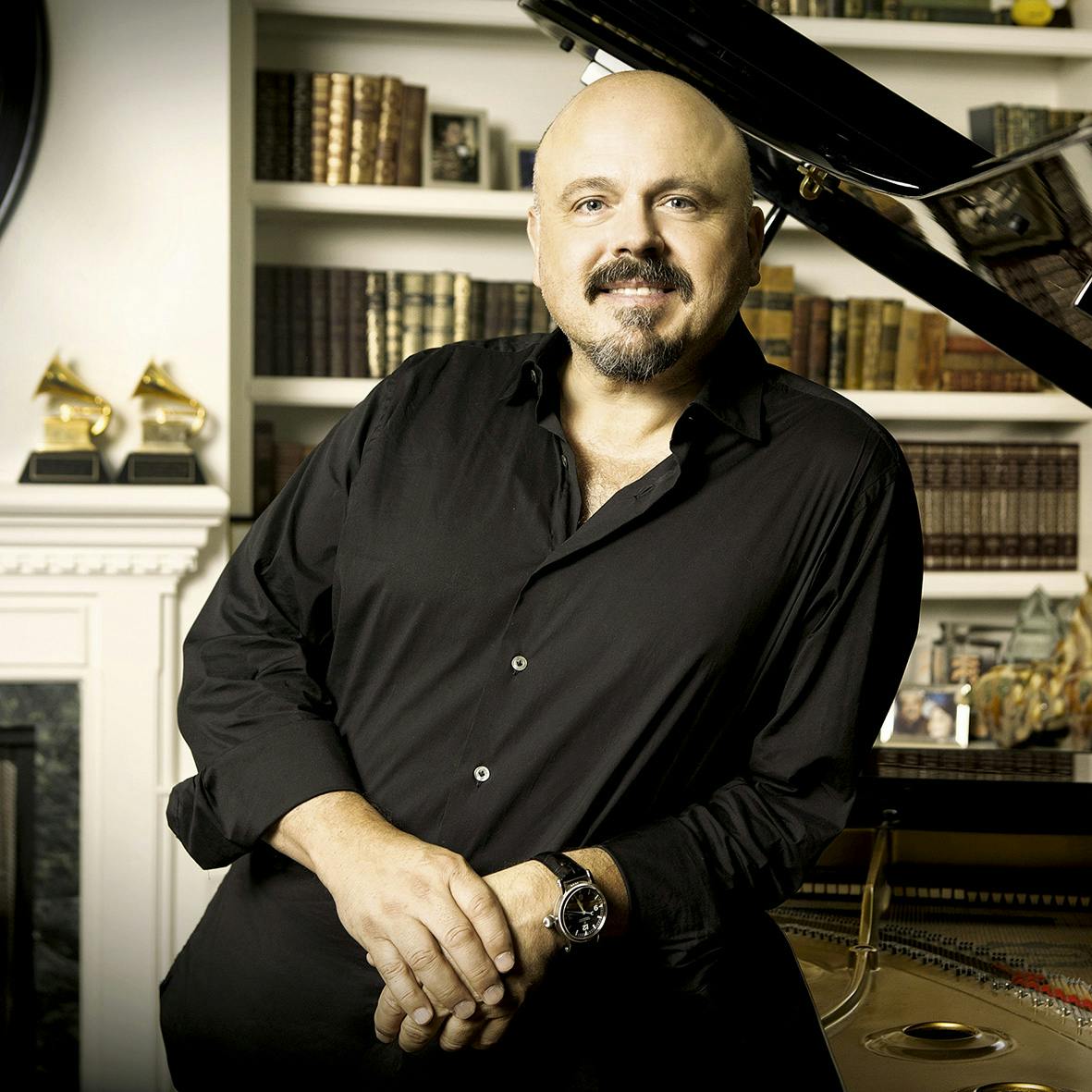
How would you describe your musical influences?
My musical influences all stem from classical music. Actually, classical composers influence 99.9% of all film composers. I listened to Tchaikovsky, Rachmaninov, Beethoven, Chopin, Bach, and Wagner for many years, so I would say they are my main influences. When you hear Wagner, for instance, if you close your eyes, you can just feel the absolute devastation of war –if that’s what he’s trying to convey. Take the scene in Apocalypse Now when the US troops are attacking the beach, and Wagner starts playing… You sense destruction and complete annihilation are coming, you feel it just from hearing that music.
What philosophy would you say informs your work?
My philosophy is simply to make my music accessible to most people, to write music they can understand and relate to. I feel that’s my obligation to the audience. I don’t like to get too technical, too dissident, or unapproachable. If I’m giving a movie director a film score, I have to make sure that the people who are watching his film are going to be moved; whether it’s a love scene, a horror scene, a death scene, the music has to match those feelings.
When you are composing, do you think in terms of scenes or of the movie as a whole?
It’s all about the scene, never about the whole thing. But the overall picture – the ‘whole, if you like – maps out the route for me to take. So, for instance, if I’m composing a score for a period film, I stay within those confines, within that period.This movie, though, about Ulugh Beg, is not just set in the 15th century, there’s also footage from the 20th century, as well as interviews with mathematicians and in museums. It was a challenge.
In terms of composing, who inspires you and which scores do you love?
My favorite composer of film music is John Williams. I think he is probably revered by every film composer as one of the greatest film composers of all time. When he writes a film composition you get more music: pound for pound, scene by scene. Every square inch of the scene is scored!
I love Alexandre Desplat, and Gabriel Yared, the Lebanese-French composer. I love a lot of Hans Zimmer and his team, who do a lot of modern film scores. A modern film score is when there’s less melody, and more movement through cellos or strings. But very little melody. That’s where modern film composing is heading or where it’s at right now –which is very difficult for me because I compose based on melodies. Hans Zimmer’s Gladiator score is one of my favorites, and was very influential in my work for Ulugh Beg.
What, to you, are the main functions and goals of soundtracks and film music, and how would you rate their importance for the movie as a whole?
I believe the soundtrack music to a film is at least 40%, if not 50% of what the whole movie is. To me, they’re almost equal partners. I know that’s a big answer, and I don’t regard filmmaking any less. But I think that when you’re trying to convey the emotion of a film, or the scene of a film, the filmmaker would have so much more to do without music. Music is incredibly important to a film. You can’t have someone dying in a scene without beautiful, sad music, or somebody pursuing somebody without that dynamic chase music.
How did you begin your work on Ulugh Beg?
Well, first of all, I began by sitting down with the director, watching the film, hearing his temp music, and discussing: Do I go off that completely? Do I have any more control or freedom in my compositions? Working with Bakhodir, I found he trusted me enough to let me do whatever I wanted, trusted I could write this kind of music. It would have been easy for him to hire an Uzbek composer and do the whole thing “in-house.” But Bakhodir realized this film is going to be international. So, I decided to score the music a little bit broader, not so exclusively Uzbekistan. I decided to go for more of a melody, more of an international, Western version of an Eastern, Middle-Eastern/Central Asian themed score.
Do you feel like you accurately depicted the spirit of 15th century Central Asia through your music or your composition?
I feel that I accurately depicted the spirit of the film, not just 15th century Central Asia. The film isn’t just about 15th century Central Asia, although that’s where the main storyline takes place. I wanted the influence Ulugh Beg had on the entire planet to come through in the music, and I believe I achieved that goal. My feeling is that the music in this film transcends 15th century Central Asia, traverses many, many centuries, just as Ulugh Beg’s discoveries and influence have.
Did you come up with your ideas straight away or did you need some time to delve into Ulugh Beg’s story so as to understand how to approach the theme? Did you do much background research?
I normally get a feeling when I look at a scene, and I start developing a melody or theme right away. I try to hit the timing, the cuts – everything about the visuals of it. It came pretty easily for the battle scenes in this movie. As for research, yes, I checked out a lot of Uzbek music, and Central Asian music in general. I went back to my influences, from Rimsky-Korsakov all the way to Hans Zimmer in Gladiator. I try not to copy anyone, but inevitably some of the score is very influenced by those sources.
Did you reference any other films when you composed the music for Ulugh Beg?
I did reference other films, because the temp music that the director, Bakhodir, put in his movie was from other movies. It is a very, very important system that we composers rely on. Because if the director uses something grand and battle-like in the temp music, well, it’s something that will help me understand what is needed for the scene.
Did you use any special techniques, equipment or instruments for this film?
My favorite part was using cultural instrumentation. We didn’t use the actual, physical native instruments, but we used samples of those instruments. In the orchestra, for example, we used the duduk, the balaban, the human voice, a choir and along with all kinds of specialized instrument sounds. But there’s no special technique. It’s just about having a very good library, a very good librarian, and a pretty good ear.
If you had to describe Ulugh Beg: The Man who Unlocked the Universe in three words what would they be?
Inspirational. Epic. Perfect.
CAST
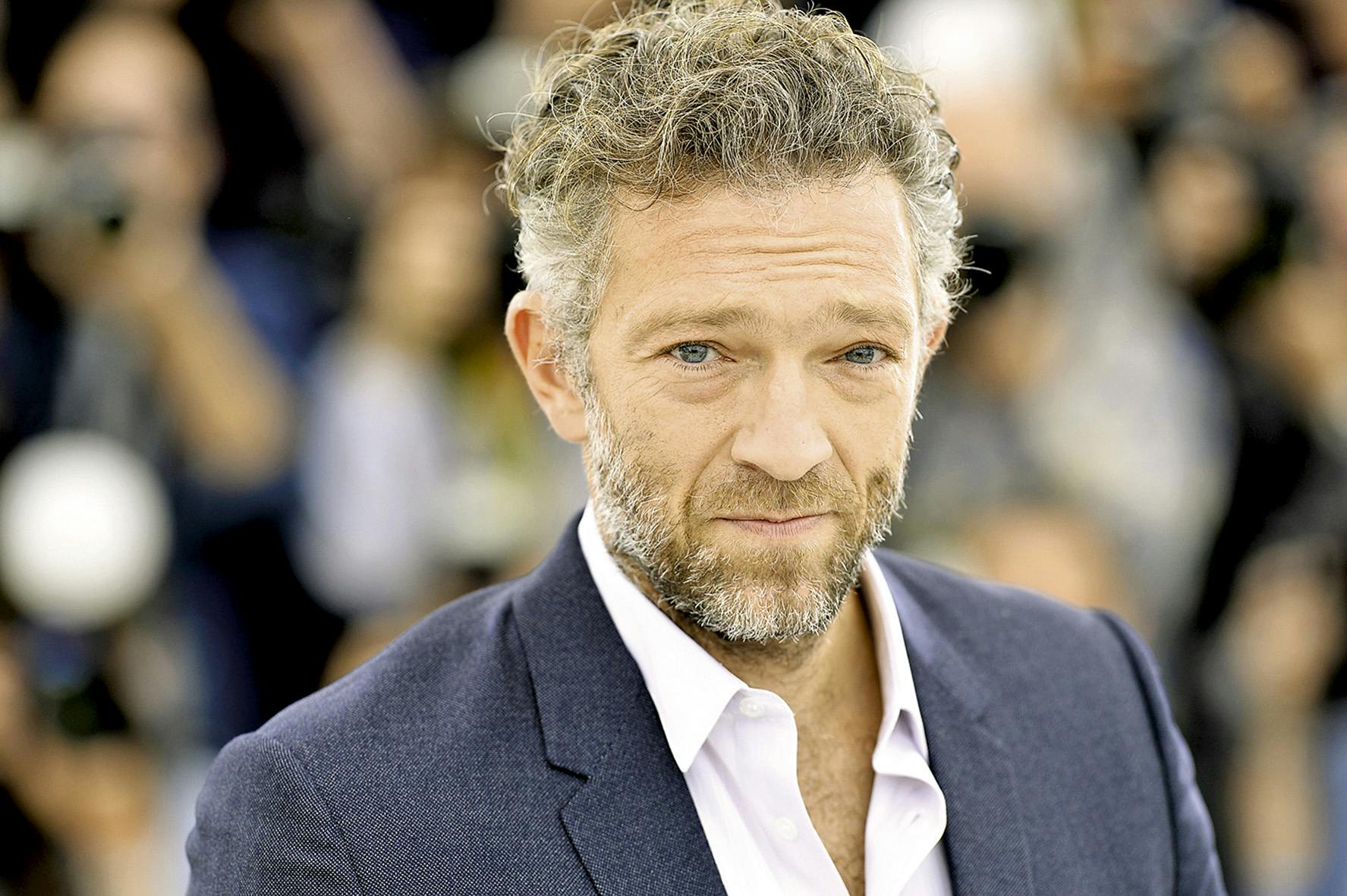
VINCENT CASSEL
Narrator
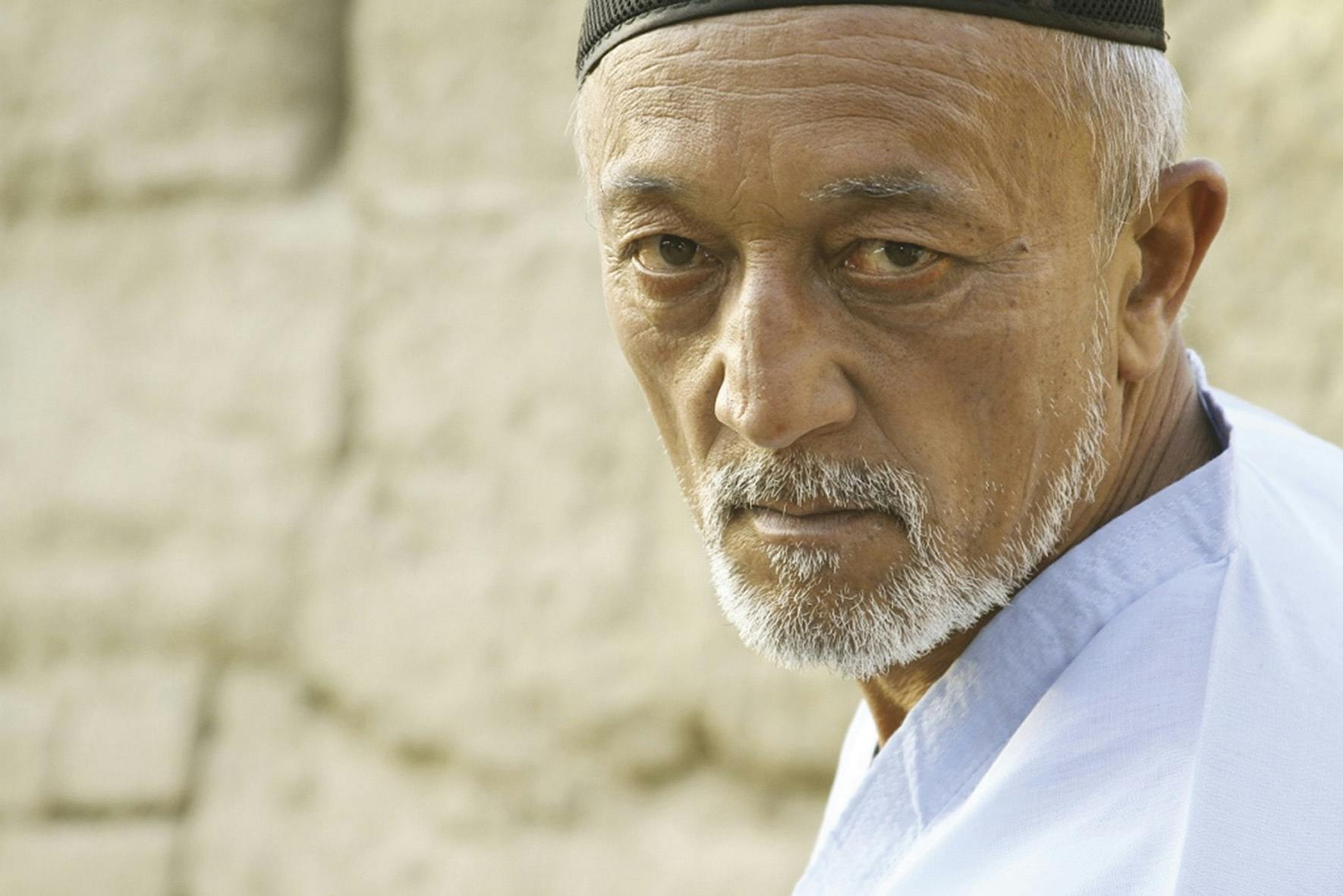
MARUF OTAJONOV
Timur
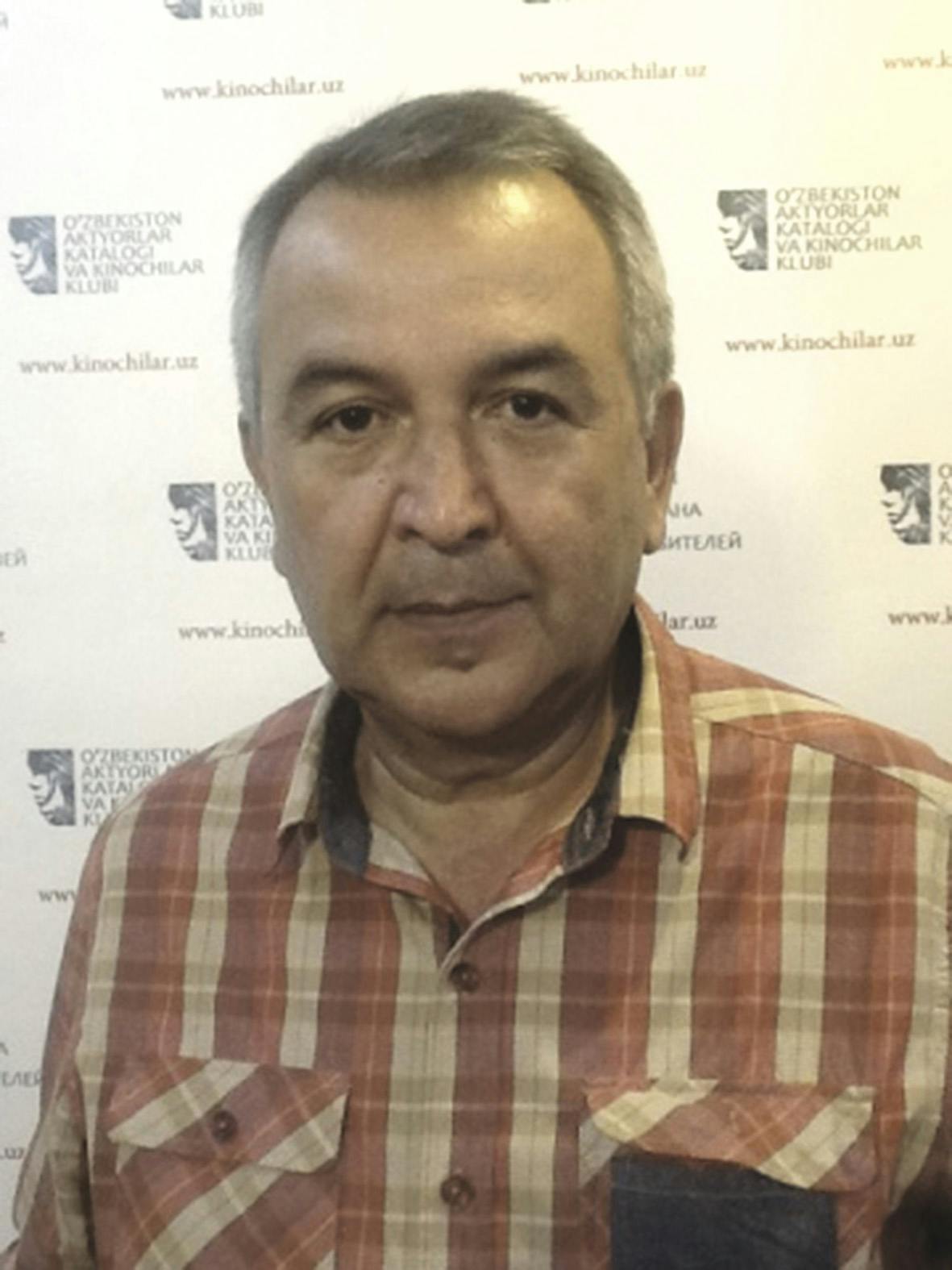
HASHIM ARSLANOV
Ali Qushchi
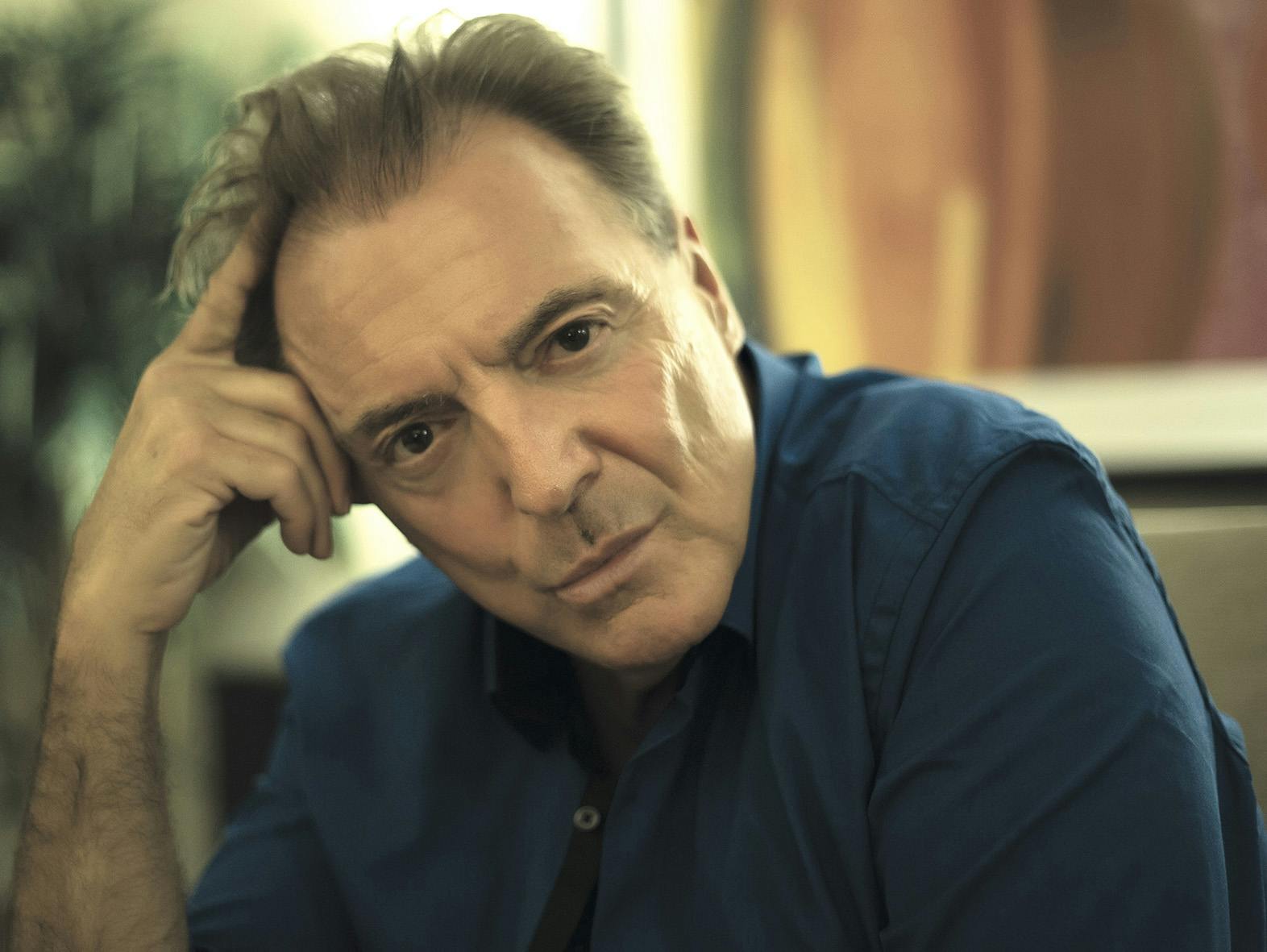
ARMAND ASSANTE
Ulugh Bek
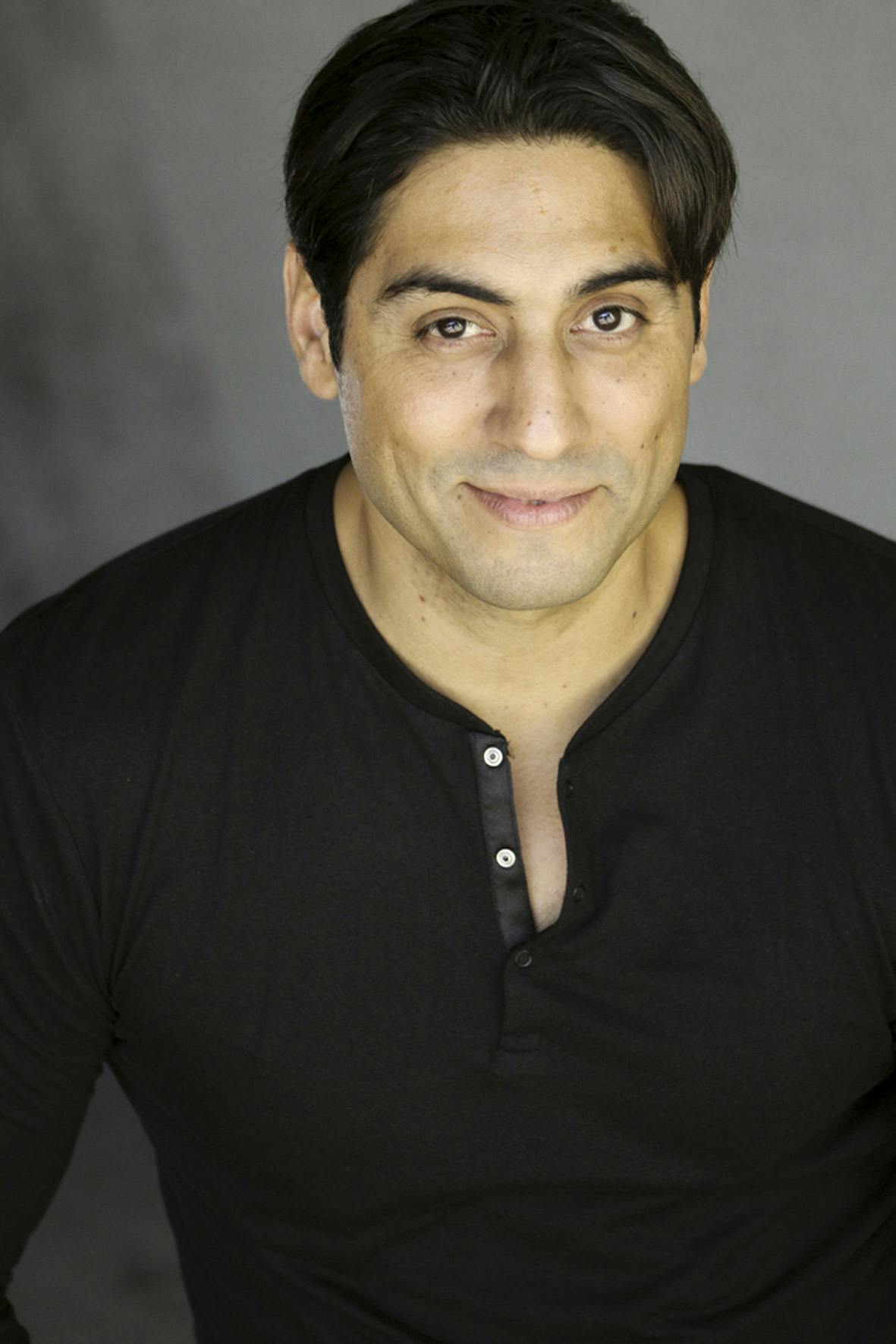
FRANCISCO OVALLE
Ulugh Bek
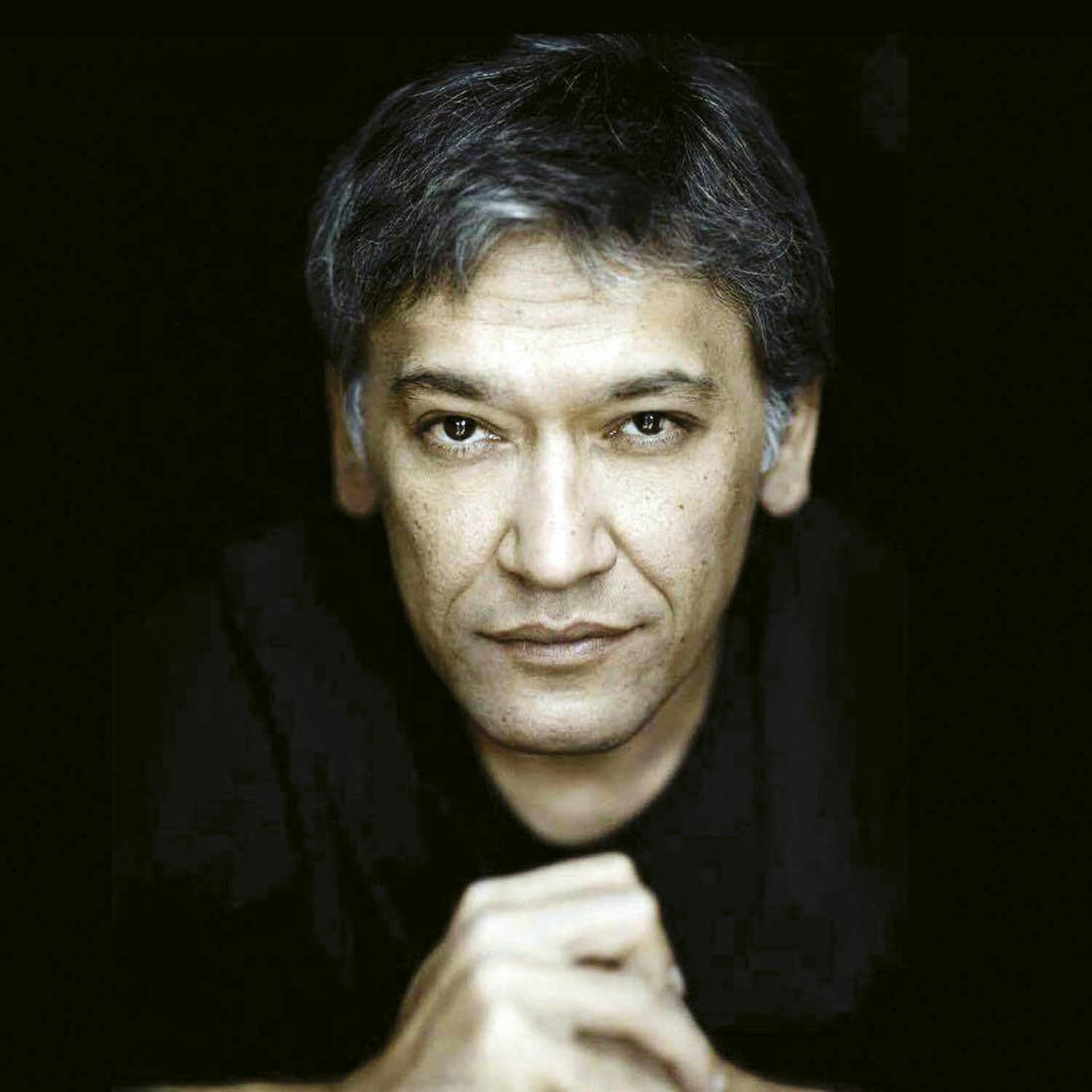
JAVAKHIR ZAKIROV
Abdal-Latif Mirza
ARMAND ASSANTE
I met Bakhodir Yuldashev in 2010 at the first film festival held in Chechnya after the conflict there. He gave me a copy of the film he submitted to the Festival, and that was the start of our friendship. We are still in discussions about an historical project we’d like to make together.

Which brings me to the subject of Ulugh Beg, and my participation in this unusual feat of acting in a docudrama where I could only provide a hint of what would normally be more dimensional. If we were to include all the scenes we actually shot between two seasons in Uzbekistan, we would easily have a six-hour film, but the nature of documentaries is to inform, so there are invaluable interviews with many scientists and historians who speak eloquently on the relevance of Ulugh Beg.
The most frustrating part of making this film was creating a character with as many dimensions and dispositions as l possibly could – with no dialogue, and knowing that the educational information would inevitably eclipse much of my footage. So be it.
I think Bakhodir’s talent shines through and happy about that.
Uzbekistan this is one of the oldest civilizations on earth. I’ve been there half a dozen times. To wander in the dead of winter through the cities of Bukhara, Samarkand and Khiva is beyond illuminating: it is a meeting with other worlds, with history we have not been taught about. It’s a humbling experience, I’m glad I had the opportunity to go there with this film.
AZAT ZHAPEKOV
Executive Producer
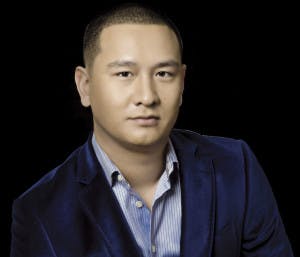
Today, with production complete and as we prepare for the film’s debut on the big screen, looking back, I remember not only how difficult the work was, but also how interesting and gratifying it was. Countless interviews in different countries, in different languages, with famous scientists and experts, all of whom hold Ulugh Beg’s work in high esteem. Meeting and working with illustrious members of the filmmaking world such as Armand Assante, Vincent Cassel, the composer Walter Afanasieff, and other talented actors. The excitement of filming the historical reenactments, which opened the doors to palaces, temples, mausoleums, museums and observatories. The actors, stuntmen, and crew, headed by Bakhodir Yudashev, the creative and technical team, and everyone else who was involved in this project, contributing to moving forwards day by day. The unforgettable times, the enthralling events, the once-in-a-lifetime sensations… I would like to extend my warmest thanks to Executive Producers Lola Karimova-Tillyaeva and Timur Tillyaev, who instigated and sponsored this project, for the wonderful creative working environment they engendered, for giving me the chance to work on such an exciting project. And indeed, for enabling the general public to become personally acquainted with the life and discoveries of Mirzo Ulugh Beg, a truly unique figure in Central Asian history.
VENICE AND ISCHIA INTERNATIONAL FILM FESTIVALS
“Ulugh Beg. The Man Who Unlocked The Universe” has won the Kineo Prize for The Best Foreign Documentary at the 74th Venice International Film Festival.
In July the film won the Best Documentary Award at the Ischia Film Festival.